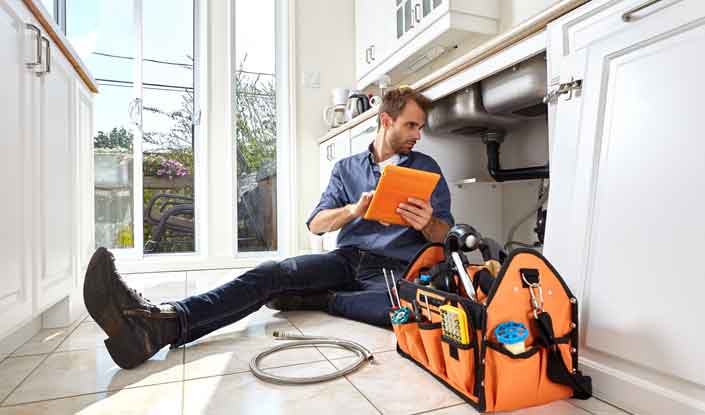Where Does a Plumber Work?

Are you interested in a career in plumbing? It’s a great choice!
Plumbers install, maintain and repair pipes used for water, sewage and gas. They often work in tight spaces and are on call for emergencies.
Some plumbers specialize in residential systems. Others work in commercial and industrial settings. Pipefitters and steamfitters work on more complex systems that move chemicals, gases and waste.
Residential
If you’re a plumber working in residential settings, your work will usually involve fixing plumbing fixtures or toilets. You might also work with water supply systems or drainage lines. Residential plumbers are often called in for emergencies like burst pipes and clogged drains.
You might also install plumbing systems for new construction projects or make upgrades to existing buildings. Plumbers who specialize in this type of work often collaborate with builders and architects to ensure that all building codes are met.
Another common plumbing specialization is with water supply systems, where you’ll work on bathroom and kitchen tanks, overhead storage tanks, water heaters, and more. This is a good option if you enjoy more advanced mechanical work. However, this type of plumbing requires more specialized training and certifications than other types of debouchage. In fact, some municipalities require water supply plumbers to have a license to perform their work. This is because of the complex nature of the tasks involved.
Commercial

Many people don’t think about what plumbers do but this job requires knowledge of the construction industry and the codes that govern plumbing. Whether it’s residential or commercial the plumbing work must follow the proper codes to prevent damage or safety risks for the building’s occupants.
In a commercial setting, plumbers install, repair, and maintain pipes and other plumbing equipment that delivers water and removes waste. They may also be required to work on larger-scale plumbing systems for office buildings, hospitals, and industrial facilities.
Commercial plumbers typically work with a team of other plumbing and construction professionals and can be required to travel between sites. They often work overtime during peak periods or when large scale projects require additional resources. Many plumbers receive training through a formal apprenticeship program sponsored by trade unions or private companies that combines classroom instruction and paid on-the-job training. Some may opt to complete a college course or attend a vocational school to gain the skills needed to enter the profession.
Industrial
A plumber who works in an industrial setting deals with pipes that carry water, gas and waste to and from large commercial or manufacturing facilities. They also may work on fixtures like bathtubs, toilets and sinks as well as appliances like dishwashers and heating systems.
Plumbing contractors who have progressed to project manager positions often find themselves working outside of the field. This can involve planning out schedules for their teams, bidding on jobs and interacting with customers to explain technical equipment problems and possible solutions.
Regardless of where they work, plumbers should have a strong work ethic and be willing to put in the extra hours to complete the job correctly. They must also have good communication skills to discuss issues with customers, and they should be able to read and interpret blueprints and other construction diagrams. Plumbing can be a rewarding career for those who are willing to put in the time to learn the trade and work hard.
Other
Plumbers are responsible for the pipes that carry water, gas, and waste into and out of homes and businesses. They also install and repair fixtures like bathtubs, toilets, sinks, and dishwashers. Plumbers work with a variety of tools and equipment to perform their jobs, and many plumbers are members of labor unions that negotiate their wages.
Plumbers often collaborate with other construction trade workers to ensure that plumbing systems are installed correctly according to building plans. They may also be required to adhere to strict safety protocols when working in confined spaces or with hazardous materials.
Conclusion:
If you’re interested in becoming a plumber, start by researching apprenticeships or college programs that offer on-the-job training and classroom instruction. Once you have the necessary qualifications, apply for a job with a plumbing company or contractor. They’re looking for employees with a positive attitude and willingness to learn! Then you’ll be on your way to becoming a master plumber.
